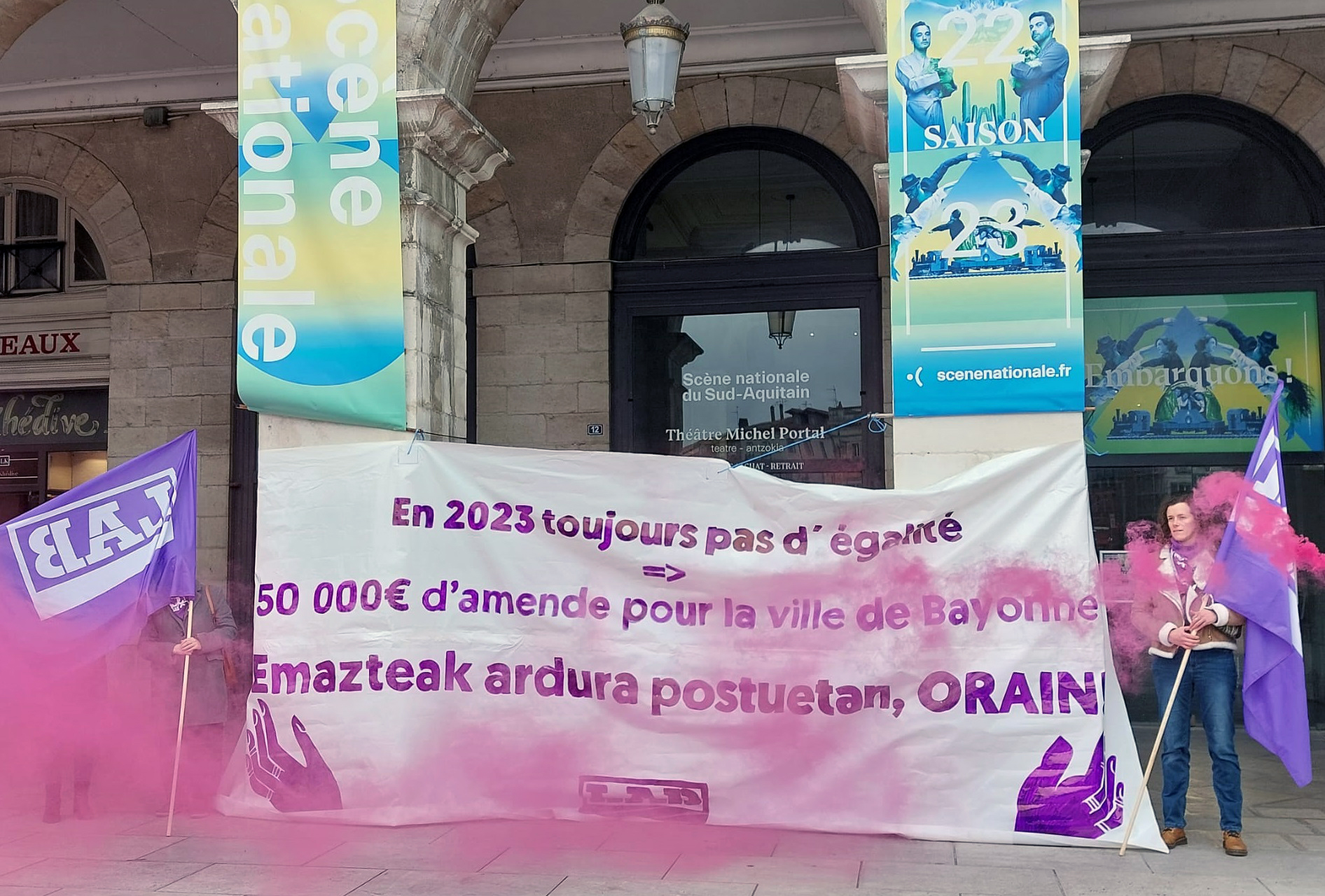Strengthening the right in Latin America
The crisis on the left jumps to Latin America. Until recently, progressive governments could be found on almost the entire map of the region. But things are changing in recent months. The three presidential elections marked a turning point: Daniel Noboa won in Ecuador, Javier Milei in Argentina and Nayib Bukel has gained almost all power in El Salvador.
The second pink wave in Latin America is over. Cuba, Nicaragua and Venezuela are still in the midst of US economic attacks. In Bolivia, the sovereign left is immersed in the civil war and Brazil, after the triumph of Milei, is hampered by its integration projects for South America.
The promising future for progressives is only clear in Mexico. Following the successful government of Andrés Manuel López Obrador, Claudia Sheinbaum Morena’s candidature for the June elections promises to be president of Mexico. However, Peru is plunged into authoritarianism after the coup against Pedro Castillo. In Guatemala, the factual powers of the State did everything possible to prevent the progressive Bernardo Arévalo from assuming the position of president. In the end they did not succeed, however, the new government is warned and, probably, in the implementation of the reforms, caution will be exercised in the face of the threat they face.
The second pink wave in Latin America is over. Cuba, Nicaragua and Venezuela continue amid US economic attacks
In Colombia, between success and failure, is the government of Gustavo Petro. Due to media problems and persecution, the president has continued to dignify a leftist and soiranist agenda. However, the future of the government is not clear, so among the forces that promote transformation the construction of a strong and cohesive left party will have to be prioritized to remain in the government or to make opposition.
One of the failures of the pink wave has been in Chile. The left-wing government is still active, but it is known that it is playing the minutes of the trash until it is thrown out in the next elections. Along the way, the constituent process has failed and Gabriel Borice has respected in favour of moderate sectors. It is true that it had a correlation of opposing forces in the legislature and in the media, but not worse than that of Petro, and in the comparison between the two Chile has been a fearful government aligned with the United States. The risk of this behavior is known: when progressives try to moderate their government, they open their doors to the far right. Otherwise, Borice only has to look at what has happened in Argentina to Peronism.
While the Left is trapped in the political suitability that marks the neoliberal interpretation of liberal democracy, in Latin America increasingly young, and not so young, see the Left as a systemic option and the Right as a rupturistic option against the system.
Perhaps most of those who voted in favour of Milei did so from the desperate resignation, but also from the individualistic view of the society that is dominating the West: I want to improve my personal situation and I am willing to harm other people unfairly. Nayib Bukel has succeeded, most of the citizens of El Salvador have had a great improvement in their life thanks to the government, despite achieving it with human rights violations and abuse of power. But among those who have not been harmed the majority is very happy, so Buel has received 85% support. Because the legitimacy of the authorities is not obtained by procedures, but by results.
Bidali zure iritzi artikuluak iritzia@argia.eus helbide elektronikora
ARGIAk ez du zertan bat etorri artikuluen edukiarekin. Idatzien gehienezko luzera 4.500 karakterekoa da (espazioak barne). Idazkera aldetik gutxieneko zuzentasun bat beharrezkoa da: batetik, ARGIAk ezin du hartu zuzenketa sakona egiteko lanik; bestetik, egitekotan edukia nahi gabe aldatzeko arriskua dago. ARGIAk azaleko zuzenketak edo moldaketak egingo dizkie artikuluei, behar izanez gero.
Otsailean bost urte bete dira Iruña-Veleiako epaiketatik, baina oraindik hainbat pasarte ezezagunak dira.
11 urteko gurutze-bidea. Arabako Foru Aldundiak (AFA) kereila jarri zuenetik epaiketa burutzera 11 urte luze pasa ziren. Luzatzen den justizia ez dela justizia, dio... [+]
MAITE: (biharko eguna antolatzen bere buruaren baitan) Jaiki, gosaldu, bazkaria prestatu, arropa garbitu, etxea garbitu, gizon hori jaiki, seme-alabak jaiki, hiru horien gosaria prestatu, haiek agurtu, erosketak egin, lanera joan, seme-alabak eskolatik jaso, merienda eman,... [+]
Matxismoa normalizatzen ari da, eskuin muturreko alderdien nahiz sare sozialetako pertsonaien eskutik, ideia matxistak zabaltzen eta egonkortzen ari baitira gizarte osoan. Egoera larria da, eta are larriagoa izan daiteke, ideia zein jarrera matxistei eta erreakzionarioei ateak... [+]
“Kasu, ez gitxu lo!”. Gure denbora eta manerekin baina heldu gira.
Azaroaren 25ean Baionako elgarretaratzera joan ez joan eta autoak nola partekatu pentsatzetik (joan-jina bi oren), bat-batean Lartzabalen elgarretaratze bat antolatu genuen, eta 47 emazte bildu!... [+]
Nahiz eta Nazio Batuen Erakundeak (NBE) 1977an nazioarteko egun bat bezala deklaratu zuen eta haren jatorriaren hipotesi ezberdinak diren, Martxoaren 8aren iturria berez emazte langileen mugimenduari lotua da.
Aurrekoan, ustezko ezkertiar bati entzun nion esaten Euskal Herrian dagoeneko populazioaren %20 atzerritarra zela. Eta horrek euskal nortasuna, hizkuntza eta kultura arriskuan jartzen zituela. Azpimarratzen zuen migrazio masifikatua zela arazoa, masifikazioak zailtzen baitu... [+]
Ez dut beti ulertzen nola aritzen ahal diren lur planeta honetako zati okitu, zuri, gizakoi eta kapitalistako aho zabal mediatikoak, beraiena, hots, gurea, zibilizazioa dela espantuka. Berriak irakurtzen baldin baditugu, alta, aise ohartuko gara, jendetasuna baino, barbaria dela... [+]
Administrazioko hainbat gai, LGTBI+ kolektiboko kideen beharrizanak, segurtasun subjektiboa, klima aldaketa, gentrifikazioa, ikus-entzunezkoak erabiltzeko modu berriak, audientzia-datuak jasotzeko moduak, dislexia, ikuspegi pedagogiko aktibo eta irisgarriak, literatur... [+]
Auzitan jar ez daitekeen baieztapen orokor eta eztabaidaezinaren gisan saldu digute hizkuntzak jakitea printzipioz ona dela, baina baditu bere "ñabardurak", edo esanahi ezkutuagokoak. Hemengo ustezko elebitasun kontzeptuaren azpian dagoen baina kamuflatzen den... [+]
Otzandu egin gara, katalanak eta euskaldunok, ekaitzaren ondoren. Saiatu ginen, bai; sendo ekin genion, eta gogor kolpatu gaituzte; ezin izan genien gure helburu zuzen, ezinbesteko, sakratuei eutsi. Eta porrotaren mingostasuna dastatu dugu, eta bigundu egin gara irabazleen... [+]
Iragana ulertzen saiatzen eta etorkizuna bideratzen, oraina joaten zaigu zenbaiti. Nire proiektuetako bat (hasi baina landu ez dudana oraindik) dudan zuhaitz genealogikoa egitea da. Horretan lagunduko didan liburutxo bat ere erosi nuen. Baina, hain da handia lana, liburutxoa... [+]
Desgaitasun fisikoa duen arkitekto baten alabaren etxea bisitatu ondoren idazten dut honako hau.
Desgaitasun fisikoa duten pertsonen taldeek ez dute arkitektoa maite, beraien bizitza zailtzen duen gaizkile bat kontsideratzen baitute. Gorrotoa ulerkorra da: arkitektoaren lanak... [+]
Ortutik itzuli berritan erabaki nuen Twitterretik alde egitea, oraindik Twitter zenean. Auzolan batera joan nintzen, brokoliak eta azaloreak landatzera, eta mindfulness efektua zapuztu zidan algoritmoak, idazle feminista transgorrotatzaile baten txioak jaurtitzearekin... [+]
Martxoaren 8a hurbiltzen ari zaigu, eta urtero bezala, instituzioek haien diskurtsoak berdintasun politika eta feminismoz josten dituzte, eta enpresek borroka egun hau “emazteen egunera” murrizten dute, emakumeei bideratutako merkatu estereotipatu oso bati bidea... [+]




















